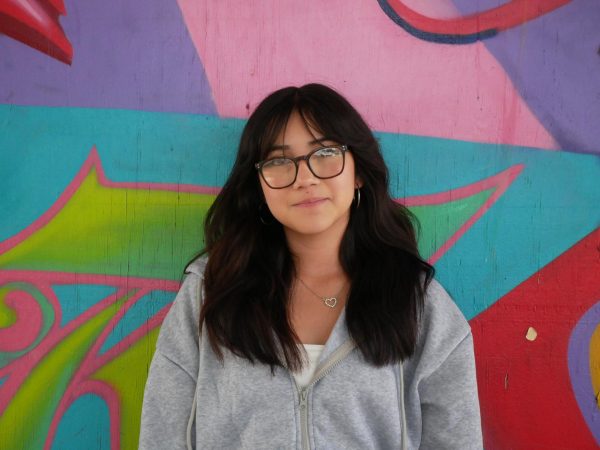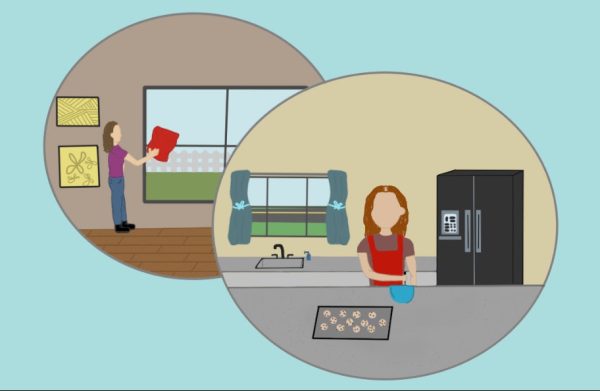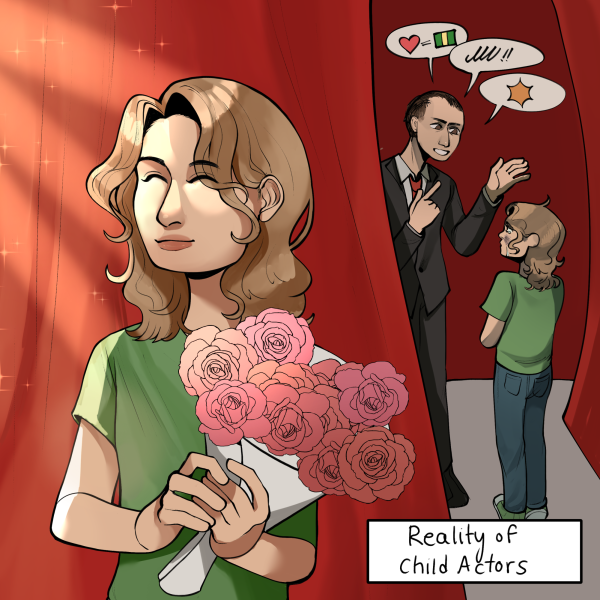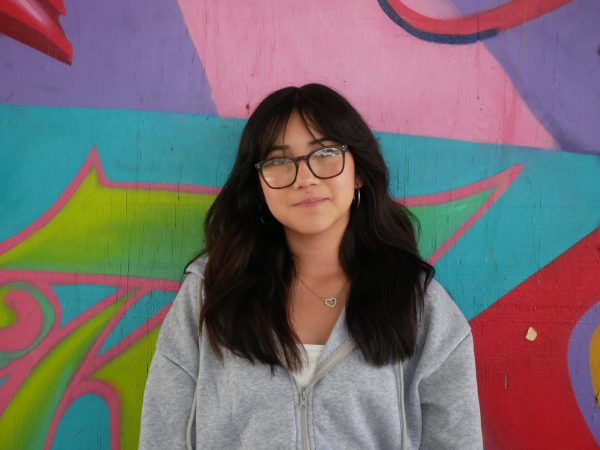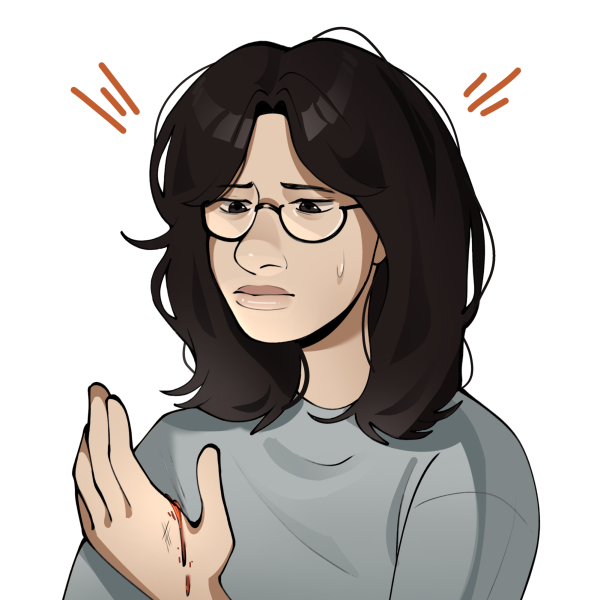It’s appreciation, not love
“I can’t help but feel hesitant before answering one of his incoming calls. Not a day passes where I feel awful when I hang up. I feel like a fraud.”
There was a time when I saw the relationship I had with my parents as something I could shamelessly joke about with my buddies— hypocritically trying to change the topic once anyone tried learning more about the situation, even if their questions were genuinely innocent. To this day, I question the intention of those remarks because, in hindsight, they weren’t funny at all. If anything, they were concerning. They didn’t come from a place of hate, but it was evident that there was a lack of love on my end.
That lack of love was for my father— a subject I’ve always felt guilty about, since I thought a son was required to love his father unconditionally. I’ve always felt that my experience wasn’t ‘bad enough’ to justify my feelings towards him.
Although I always knew it was wrong, I used to ponder which parent loved me more given that my perspective of them would frequently change. It’s normal for children to gravitate towards a certain parent, and, in my case, I always remembered being a needy ‘mama’s boy.’
Looking back, my mother was not able to provide me anything my father couldn’t, but she possessed the ability to make me feel ‘loved’ rather than just ‘cared for.’ That wasn’t one of my father’s specialties.
Before I could properly decipher who my parents were, I adored my mother as a courageous woman who overcame her demons for the better of her children. She inspired my lifelong promise of sobriety, but as I grew older, my father bitterly revealed how distant she was after my birth— practically leaving him a single father for the first years of my life.
This story always felt like a hoax meant to make me think poorly of my mother.
Unfortunately for my father, I do not remember my infancy. As far I can remember, I viewed him as a strict, overwhelming figure who would routinely whistle whenever he wanted me to return home from playing.
A buzzkill.
Looking back, I can appreciate how decent of a father he was. But eventually he began to live in my mind as a bitter drunk stuck in a relationship with a lively woman and a son whom he couldn’t be proud of.
This continued for years until I was in third grade, on a day that forever fractured my idea of home. As I woke up early (probably thinking of a way to skip school), I heard footsteps on the stairs outside grow progressively louder until the door was knocked down. Although I recall having a gun pointed at me that day, the lingering trauma I remember the most was how my dog Coco would forever be terrified of a knock at the door.
The mixed opinion I held about my parents only intensified after the deportation of my father. I followed my mother from place to place like a shadow and admired her perseverance, but dreaded the weekend trips to Mexico that were plagued with my parents’ relentless fighting.
The story was different whenever it was just him and I together. We’d bond, better than we ever did before. I remember always feeling nauseous whenever my mother’s taxi would pull up because I knew there was something negative she’d discover— something I was too young to notice. Whether that was his different tone of voice, the smell or even just the look on his eyes.
Of course my younger self didn’t realize why my mother had gotten mad at him so often, but it didn’t take long for me to notice that my father wasn’t completely there when I spoke to him.
Eventually, I grew tired of the constant fighting, resenting him out of spite. But I found it hard to just ‘go home.’ Whenever my mother wasn’t having it, I would always try to make excuses for my father.
“Why do you always defend him? Why don’t you defend me?!” she would ask.
Although it may have appeared that I was a naive child who idealized his father’s behavior, these words were always simply an effort to reason with my mother. If my father wasn’t going to admit he was in the wrong, I did not see any other option for a calm weekend. I had to take on the role of the peacemaker.
The summer of 2014 would be the last time I could honestly say I loved my father. On a bumpy bus ride to the border, I begged him at least 50 times, “don’t fight with her.” I was reminded of the lousy person he had been for years when he didn’t keep his promise.
I didn’t talk to him for three years after that day, even though my mother eventually began scolding me for it. Those years enabled me to depend on my mother even more since she was all I had at that point, or at least it felt that way.
At one point, she would force me to go see him, and once I saw him coming… I couldn’t handle the pressure. A small crowd formed to watch the small boy sitting against a wall, keeping his crying hidden from view.
That’s probably the first time I ever had a nervous breakdown.
Perhaps as punishment for my selfishness, my mother would gradually relapse after witnessing the love of her life commit suicide. The same man she left my father for.
The woman I knew all my life was suddenly gone. Although I had been neglected during her self-destruction, I was in a state of denial. I began to wonder if this was the woman I saw as a baby, a warning from my father that I could not remember.
It’s now been four years since my mother chose to live on the streets and abruptly exited my life. When I was going through this loss, I still chose to ignore my father’s attempts to reconnect until my maternal grandmother reminded me of my infancy— the time my father cared for me when my mother seemed to be ‘busy.’
A story I hadn’t heard in years.
Ever since then, I’ve started to rebuild the relationship with my father. Despite the noticeable efforts he’s made to better himself, the bond we had is no longer there. The vulnerability I feel when I’m with him worsens the fact that I no longer feel like a son in his presence.
I can’t help but feel hesitant before answering one of his incoming calls. Not a day passes where I feel awful when I hang up. I feel like a fraud.
“I love you too, goodnight,” is a lie I tell him almost every day.
I’ve always wondered if I was in the wrong for not loving him as a son should. While he may have contributed to traumatic years of my childhood, the idea of “it could’ve been worse” always lingered in my mind. I felt horrible that, while I inherited his name, I couldn’t stand being compared to him in any way.
I tend to feel ungrateful. Here I was, afraid of not having a parent figure yet part of me couldn’t accept the one that was available.
Last week I received a call from my father asking me to visit him for my upcoming birthday, and I had to vaguely tell him how I had been feeling. I understand that my father has reformed himself into a good man, but my desire to reconnect with him is nonexistent.
“I’m thinking of just going to Canada. I’m not sure what to do here,” he said.
“Are you telling me that because you think that’s better for your life?” I asked, “Or are you just trying to make me feel bad?”
Although I know I’m never going to “confess” that I don’t love him anymore, I’ve come to terms with my feelings. I appreciate the life he gave me as a young child, but I shouldn’t feel like I’m lying to him over something I can’t fully control. No son should ever feel obligated to unconditionally love their father.
Despite all this, I still feel that the proper thing for me to do is visit him. Next month will be the first time I go see him as a “grown” 18-year-old, and I’m not going to allow myself to feel pressured into pretending for his sake. I believe the healthier option will be for me to be completely honest.
I need to see how strong our relationship can really be without a facade.
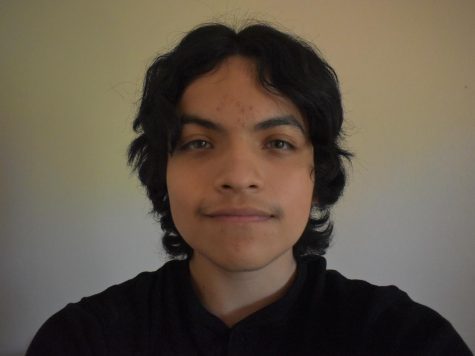
Hello, I’m currently a senior at BVH and this is my second year on staff and I originally joined in order to expand on my writing ability. I can honestly...
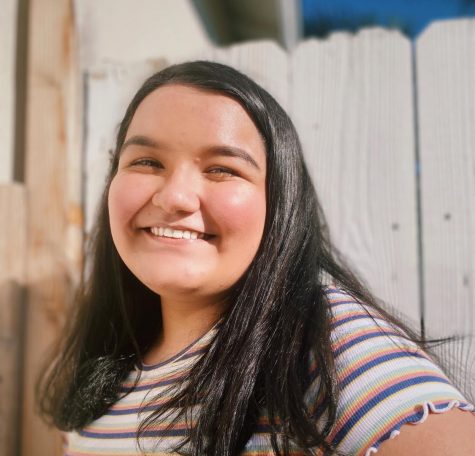
My name is Kara Barragan and this is my fourth and final year with the Crusader. As a freshman I was on the lookout for an outlet where I could put out...


